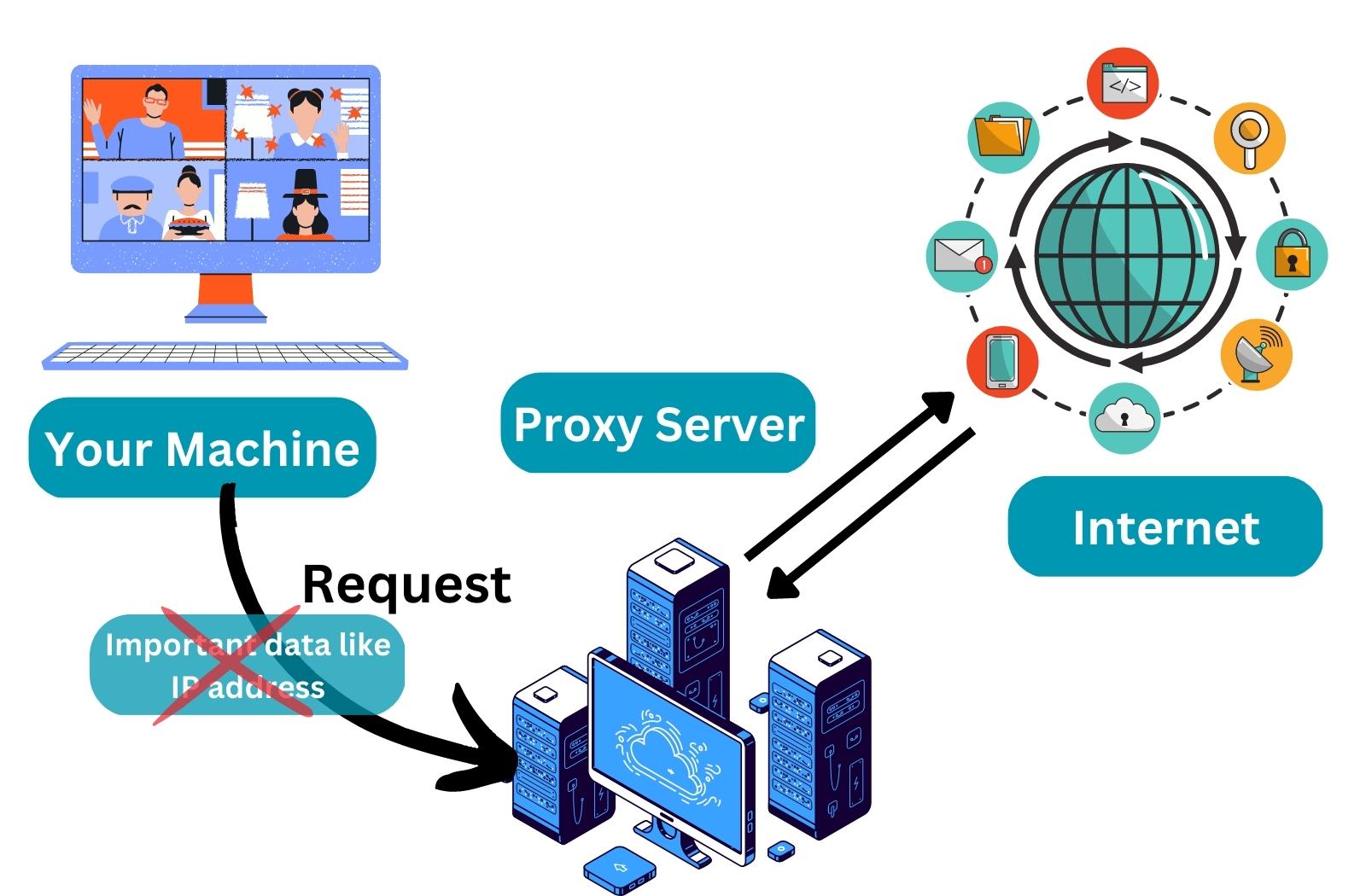Within the current digital age, content streaming has turned into a integral aspect of human lives, providing us instant access to our beloved programs, movies, and music. However, many users face frustrating geo-restrictions that limit users' ability to enjoy content from different areas. Here is the moment proxy servers become relevant, providing a robust means to overcome these limits effortlessly. By as go-betweens between clients and the web, proxy servers not only allow access to blocked content but also enhance online confidentiality and security.
Understanding how a proxy server works and the various types available can empower users to take educated choices about one's online interactions. From improving security and privacy to enhancing internet access for content consumption and gaming, the advantages of using a proxy server are significant. In this article, we will explore the various features of proxy servers, their advantages and disadvantages, and ways in which they can transform your streaming experience, making sure you can enjoy your preferred content free from restrictions.
Understanding Proxy Servers
Proxy servers serve as intermediaries between your device and the internet. When you connect to a proxy, your inquiries for web content are forwarded to the proxy server first. https://rentry.co/tkeyxb6w passes on your request to the end destination, retrieves the data, and delivers it back to you. This method allows your real IP address to be kept concealed since the destination site only views the IP address of the proxy, improving your confidentiality online.
There are numerous types of proxy servers, such as HTTP, Socket Secure, and clear proxies, each made to serve distinct purposes. HTTP proxies are chiefly used for web traffic, while SOCKS proxies support any type of internet traffic, making them more versatile. Transparent proxies do not alter requests but can be used to sift content within a system. Recognizing these differences helps you select the right type of proxy for your specific needs, whether it involves streaming, browsing, or alternative online functions.
Using a proxy server offers several benefits, including improved online security and privacy. By hiding your IP address, proxies can shield you from surveillance and cyber threats. Moreover, they can also enhance browsing speed by storing frequently used content. Proxy servers are essential resources for individuals seeking to enhance their virtual experience and maintain a higher level of privacy while on the internet.

Benefits of Proxies for Streaming
Utilizing proxy servers for streaming offers substantial advantages for bypassing geographical limitations. Numerous popular streaming services, such as Amazon Prime, enforce location-based content limitations. By using a proxy, viewers can modify their perceived location to view exclusive content that could not be available in their region. This opens up a broader range of shows, movies, and live events that would regularly be inaccessible.
Another important benefit is enhanced online privacy. When streaming through a proxy server, your true IP address is hidden, making it hard for ISPs and third parties to watch your online actions. This additional layer of anonymity allows you to enjoy content without the worry of being watched or having your data logged. For people who prioritize privacy, proxies are an efficient tool in ensuring an inconspicuous connection while consuming media.
Additionally, proxy servers can assist boost streaming performance. Omeka can minimize bandwidth throttling by ISPs, which frequently occurs during busy usage times. By routing your traffic through a proxy, you may encounter less buffering and improved load times, leading to a more pleasurable viewing experience. This can be particularly beneficial when viewing high-definition or live content, where streaming quality is vital.
Choosing the Right Proxy for Your Needs
Choosing the appropriate proxy server is important for maximum performance and protection. The first step is to determine your key need—if it be streaming, surfing anonymously, or using it for business purposes. For streaming, you'll want a proxy that is specially optimized for speed and can easily bypass geolocation restrictions. Look for services that have a track record for both dependability and performance, as lagging can degrade the quality of your viewing significantly.
Furthermore, think about the kind of proxy that best suits your needs. For instance, if anonymity is your primary concern, a residential proxy may be suitable as it typically offers a higher level of anonymity compared to commercial proxies. Conversely, if you're looking to gather data effectively, data center proxies can provide the needed speed and volume. Ensure you assess the features available by various proxy types, including their ability to manage large requests and their geo-targeting features.
Lastly, always consider the service provider’s reputation and customer support. Reputable providers often offer a money-back guarantee, allowing you to test their service risk-free. It is crucial to read reviews and maybe seek recommendations to avoid free proxies that can threaten your safety. The best choice should balance performance, reliability, and user support to meet your specific needs effectively.
